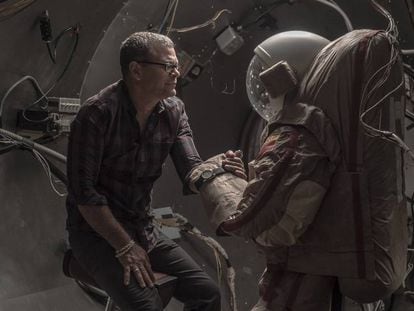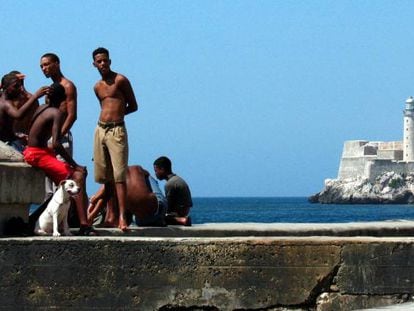Trump’s victory casts chilly shadow over Cuban thaw
President-elect’s statements regarding US policy toward island have raised concerns


“Cubans are the best people in the world. I would love to help rebuild their country and restore its former splendor. As soon as laws change, I am ready to build the Taj Mahal in Havana,” said Donald Trump two decades ago.
Today, Trump is the president-elect of the United States, and one of the many unknowns about his future tenure is what his Cuban policy will be.
Trump’s role will no longer be to fantasize about the fabulous business deals to be had on the island, but to address Cuba as a matter of state.
We should ask him if he wants to do more business
Carlos Alzugaray, former Cuban diplomat
The man who will hand over the Oval Office to him on January 20, Barack Obama, will be remembered for paving the way to the end of the historic conflict between the US and Cuba.
But it is unclear whether his Republican successor will pick up where Obama left off or whether he will dump the Obama doctrine altogether.
“We don’t know what’s going to happen. The situation could go back to the way it used to be, with more restricted contact between both governments, an even tougher embargo and sanctions, along with less contact between both people. The thaw is at risk,” says Jorge Duany, director of the Cuban Research Institute at Florida International University.

Obama believed that the best way to push Cuba toward democracy was to facilitate contact with the United States. He made it easier for Cubans working in the United States to send money home, eased conditions for US citizens to travel to Cuba, reopened regular flights, signed permits allowing some companies to start doing business with the island, and eliminated barriers on the import of Cuban rum and cigars.
Trump’s business background would suggest he too would take a pragmatic approach to trade. The trouble lies in the fact that nobody knows what the next president’s foreign policy will be.
During his campaign, Trump went from more or less supporting the thaw –“it’s fine, but I think we should have done a better deal”– to visiting Bay of Pigs veterans two weeks before the election and promising that he will not talk with Havana unless the latter pledges to fully embrace civil liberties.
His rhetoric was aimed at attracting anti-Castro votes, but Trump could backtrack when he fully assesses the Cuban interests of companies like Starwood, Caterpillar, Google or PayPal.
“Trump has said many things. We should ask him what he wants: whether he wants to do more business, for example," says Carlos Alzugaray, a former Cuban diplomat. “If so, the ball is in his court: he will have to force his Republican colleagues to lift the embargo. But if his policy is what he announced in Miami toward the end of his campaign, well, we've heard all that before.”
Cubans at home and abroad are wondering what will happen next. If US policy tightens, their economic and family ties could become more difficult again.
The news comes just as the Cuban-American vote had tipped in favor of the Democrats for the first time. A poll by Latino Decisions shows that 50% of the Cuban-American vote went to Hillary Clinton and 48% to Trump. In 2012, 65% voted Republican.
Meanwhile, the Cuban government has issued a neutral message of congratulations to the next president of the United States. In an apparently unrelated move, the Ministry of Revolutionary Armed Forces has announced military maneuvers for next week.
English version by Susana Urra.












































